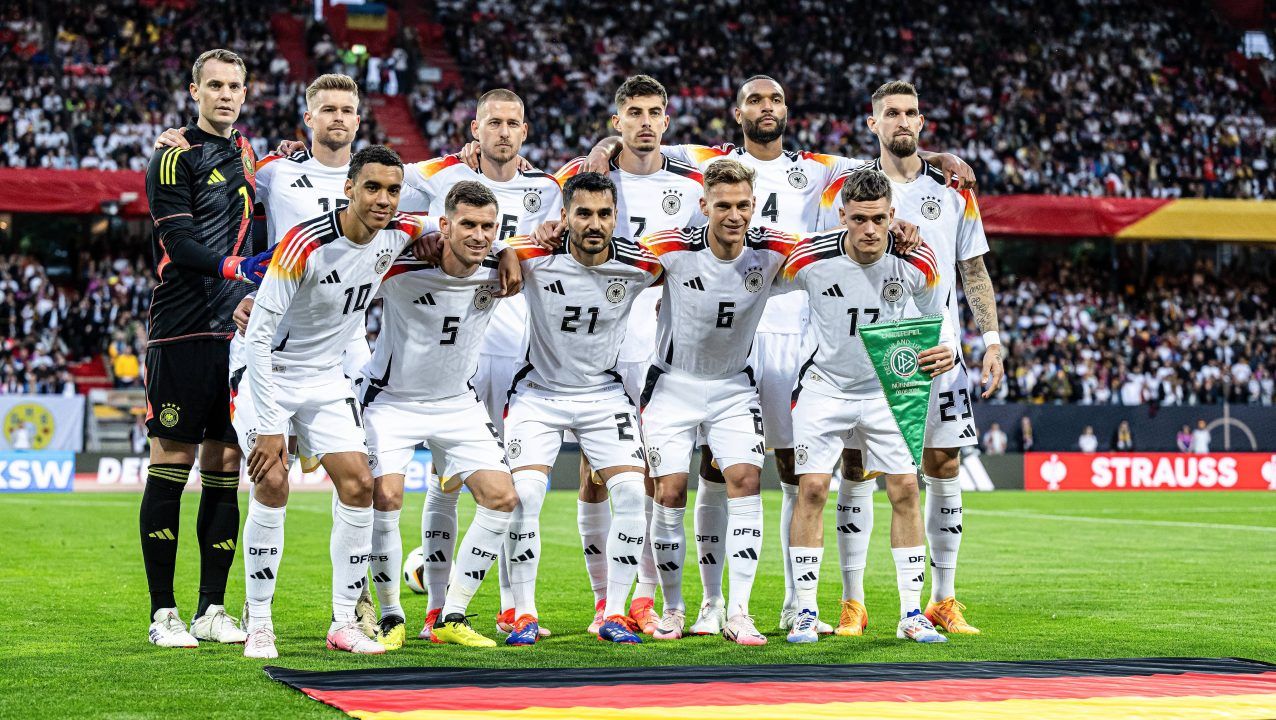Scotland could not have asked for a bigger opening game. Taking on the Euro 2024 hosts at the 70,000 capacity Allianz Arena is exactly the kind of glamour fixture that big tournaments are supposed to deliver.
Steve Clarke and his players will step on to the pitch with ambitions of taking a step towards history and becoming the first Scotland side to reach the knock-out stages of a major tournament.
But for Germany, home advantage and a long history of excelling on the global stage means they carry a different expectation, and all the pressure that comes with it.
The past few years have been turbulent for ‘Die Mannschaft’ and when the draw for the finals was made, plenty thought Scotland had landed the “easiest” of the Pot 1 sides.
Julian Nagelsmann’s team have had some notable results since and are out to prove that not only do they deserve to be mentioned in the same breath as Spain, England and France, but that they can beat the rest to lift the trophy in Berlin a month after opening the tournament.
No qualifiers but friendlies proved testing
Being awarded automatic qualification as hosts can be something of a dubious privilege.
It may ensure there’s no danger of failing to reach the finals and having to welcome other teams to a party you can’t participate in. But there’s also the fact that your team is robbed of competitive games to prepare for a tournament you’re expected to do well in.
Germany’s preparations for the Euros have been played out in a series of friendlies – and results have been mixed to say the least.
Since the last World Cup (and not including Friday’s match against Greece), the national team has played 14 friendlies. Five have brought victories, three have ended in draws but six have seen the team lose.
That paints a picture of a side that shouldn’t be setting their ambitions too highly. But the reality is a little different. Four of those defeats – to Belgium, Poland, Colombia and Japan – came under Hansi Flick and led to the manager’s sacking.
Technical director Rudi Voller oversaw a win over France before Nagelsmann was appointed and, while he has seen his side lose to Turkey and Austria, the back-to-back wins over France and Netherlands in March are being looked on as proof that things are turning in a very positive direction at the right time.
Nagelsmann in charge after turbulent time
Still only 36, Nagelsmann is young to be an international manager but his appointment by Germany seems one where both are good for each other.
The manager was a coaching wonderkid who made a rapid rise from being the youngest every Bundesliga manager when in charge of Hoffenheim aged 28, to boss of RB Leipzig and then taking on his dream job at European giants Bayern Munich.
Nagelsmann lasted a year and a half in Munich and won the league title but was sacked over inconsistent form despite having a win rate of over 70%.
It’s widely reported that other factors including his fashion sense, eccentricities like skateboarding around the training ground and his personal life also meant he had an uneasy relationship with the club hierarchy.
His departure meant he was looking for another high-profile job and Germany needed a positive change of direction with only months to prepare.
Renowned for his attention to detail and tactical focus, Nagelsmann experimented early on and had setbacks but has found a system that helps bring his most talented players to the fore.
What he doesn’t have is experience of an international tournament, and he is only eight months into the job. Nagelsmann and his three assistants all under the age of 40, though Voller is still in place in a role above the coaches and has an enviable record at major finals. record
Germany’s reputation as a tournament team has been well-earned over the years but there might well be questions about the new coaching regime handling the intensity of a short-form competition and keeping the squad happy.
Big names and emerging talent

For all the youthfulness of the coaching team, the playing squad has far more of a blend of old heads and developing talent.
The spine of the team has seen it all at club level, with Manuel Neuer, Antonio Rudiger, Ikay Gundogan and the returning Toni Kroos having the talent and temperament to have enjoyed long and successful careers. That quartet has 11 Champions League triumphs, two World Cup winners medals and 25 top flight league titles between them and won’t be fazed in the slightest by the pressure.
Supplementing that experience are an exciting new generation, with Florian Wirtz, Aleksander Pavlovic, Jamal Musiala all 21 or younger, and Kai Havertz another dangerous figure in attack.
Finding a way to use both attacking midfielder Musiala from Munich and Leverkusen phenomenon Wirtz was Nagelmann’s version of Steve Clarke’s Andy Robertson/Kieran Tierney problem, but like Clarke, Nagelsmann found a system to accommodate both.
Kroos’ decision to return to the international fold for one last hurrah before retiring not only means another few weeks of inevitable ‘Kroos control’ headlines but also means that opposition teams will have to contend with his eye for a perfect pass to release the dangers of the attacking trio in front of him. Scotland beware.
The expectation
Germany’s record on the big stage stands up well against anyone else’s. Four World Cup wins and four-times runners-up. Three time European champions and three-time runners-up.
As host nation, they reached the last four of the Euros in 1998, and when they’ve put on a World Cup, they’ve either won it (1974) or reached the semi-final (2006).
Recent years haven’t been so kind though, with Germany knocked out of the last two World Cups at the group stage and only making the round of 16 at the last Euros, meaning there’s a little anxiety about this year’s challenge.
That 2006 tournament is the one that will give fans the most hope. Results in the year before the competition were mixed and Jurgen Klinsmann’s side weren’t expected to impress but they found form from the start and gave the nation a memorable summer.
Nagelsmann will be aiming for something similar and a strong start could mean a feel-good factor that helps the team go deep into the competition and dream of lifting the trophy.
But the side is far from the finished article and a propensity for leaking goals will give anyone hope they can put the hosts on the back foot and see how the pressure develops.
Follow STV News on WhatsApp
Scan the QR code on your mobile device for all the latest news from around the country


 Getty Images
Getty Images
























